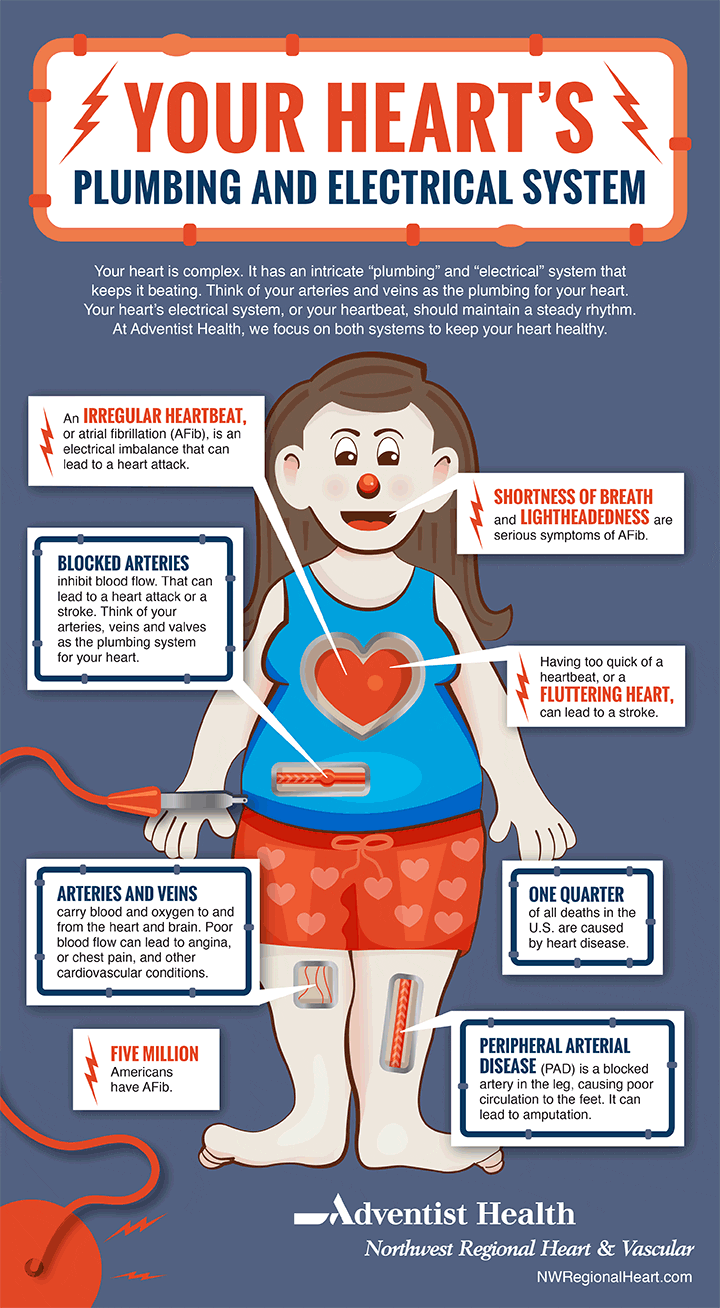
The heart is an extremely complex organ. It serves as the engine room for your arteries and veins, circulating blood and oxygen throughout the body, including to the brain.
Similar to a home or car, the heart has both plumbing and electrical systems that require regular maintenance to prevent cardiac conditions, such as a blocked artery or an irregular heartbeat.
“Maintaining a nutritious diet, exercising regularly and making healthy lifestyle choices will keep your arteries clear and help prevent heart disease, diabetes and stroke,” says Dr. Katie Strelich, a cardiologist at Adventist Health’s Northwest Regional Heart & Vascular.
Those three diseases combined kill more than 800,000 Americans each year.
A good starting point to find out your risk for heart disease is to run diagnostics or complete an assessment, just like an electrician or plumber might.
Common cardiovascular conditions
There are many types of cardiovascular diseases that affect the heart and other parts of the body. Coronary artery disease (CAD) is the most common, damaging the heart’s major blood vessels and leading to heart attack.
That’s because CAD is caused by fatty buildup (plaque) in the arteries, which narrows the pathways for blood to get to the heart. If the plaque hardens and ruptures, it can lead to a heart attack or a stroke.
These cardiac “plumbing” issues account for a quarter of all deaths in the U.S. “Electrical” issues can also occur, but these are lesser known. And while an irregular heartbeat may not be deadly, it can lead to other more harmful heart conditions.
“Clogged pipes” can cause a cardiac plumbing problem
Think of your arteries and veins as the plumbing system for your heart.
Arteries carry blood from the heart to the rest of the body, while your veins carry blood to the heart. As with any plumbing system, the heart’s pipes can get clogged over time due to plaque buildup from cholesterol, fattening foods and tobacco use. Alcohol consumption, high blood pressure and high blood sugar levels also contribute to blockages in the heart.
Blocked arteries and veins inhibit blood flow, which can cause a heart attack. Poor circulation of blood also reduces the amount of oxygen reaching the brain, a life threatening condition.
In general, these are the heart conditions most people hear about. But there are also “electrical” problems that often go unnoticed. While at the time it may not seem like a big deal, fatigue or shortness of breath could be signs of more serious heart and health conditions.

A shock to the heart’s power grid
An irregular heartbeat, or commonly atrial fibrillation (AFib), is an electrical imbalance that can lead to five times the increased risk of stroke.
Shortness of breath, lightheadedness and fatigue are just a few of the serious symptoms of AFib, which affects more than five million Americans. Heart palpitations are also warning signs for AFib.

“While AFib won’t necessarily kill someone, it can lead to stroke or other cardiac problems that can be deadly,” says Dr. Fawaz Alhumaid, an electrophysiologist at Adventist Health’s Northwest Regional Heart & Vascular.
An electrophysiologist is a specialized cardiologist who deals with heart rhythms.
According to some of the region’s leading electrophysiologists and heart health experts at Adventist Health, the main contributors to AFib include high blood pressure, obesity, diabetes, sleep apnea, and excessive alcohol consumption. Dr. Alhumaid stresses that people 60 plus who have had previous heart conditions are at an increased risk for AFib.
“The best way to prevent or reduce your risk for AFib is to maintain a healthy blood pressure through regular physical activity and routine medical visits. Avoiding excessive consumption of caffeine and nicotine is also important for prevention,” says Dr. Alhumaid.
Tips for preventing heart disease
Depending on your heart age test results and conversations with your primary care provider about your health, there may be changes you can make to improve your heart health.
These tips can help keep both the blood and electricity flowing through the heart at an appropriate and healthy rate:
- Quit tobacco: smoking damages the arteries, leading to angina, heart attack or stroke
- Exercise regularly: 30 minutes of moderate daily activity improves blood flow and heart strength
- Improve diet: eating a nutritious diet prevents plaque buildup in the arteries
- Know your heart health numbers: healthy cholesterol, blood pressure and blood sugar levels reduce your risk for heart disease
- Maintain a healthy weight: excess weight can put strain on the heart, as it makes it more challenging to pump blood throughout the entire body
- Cut down on caffeinated and alcoholic beverages: consuming excessive amounts of these beverages can lead to AFib and other cardiac problems

